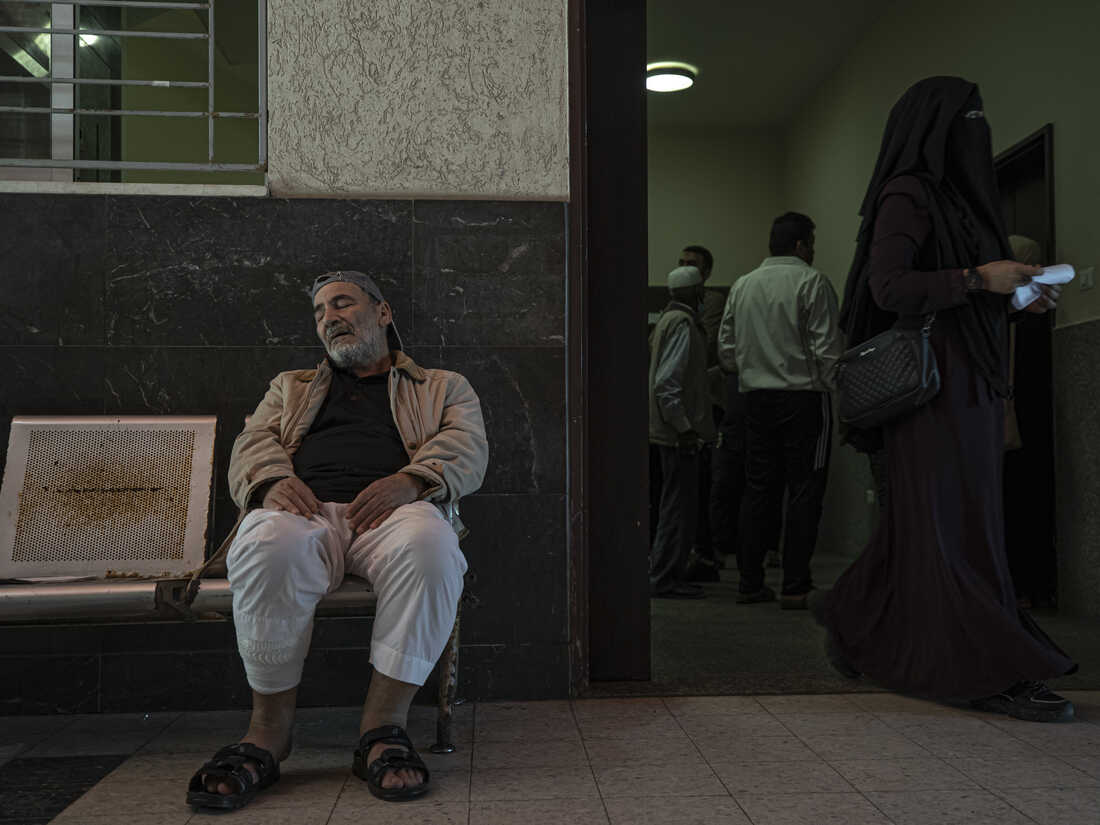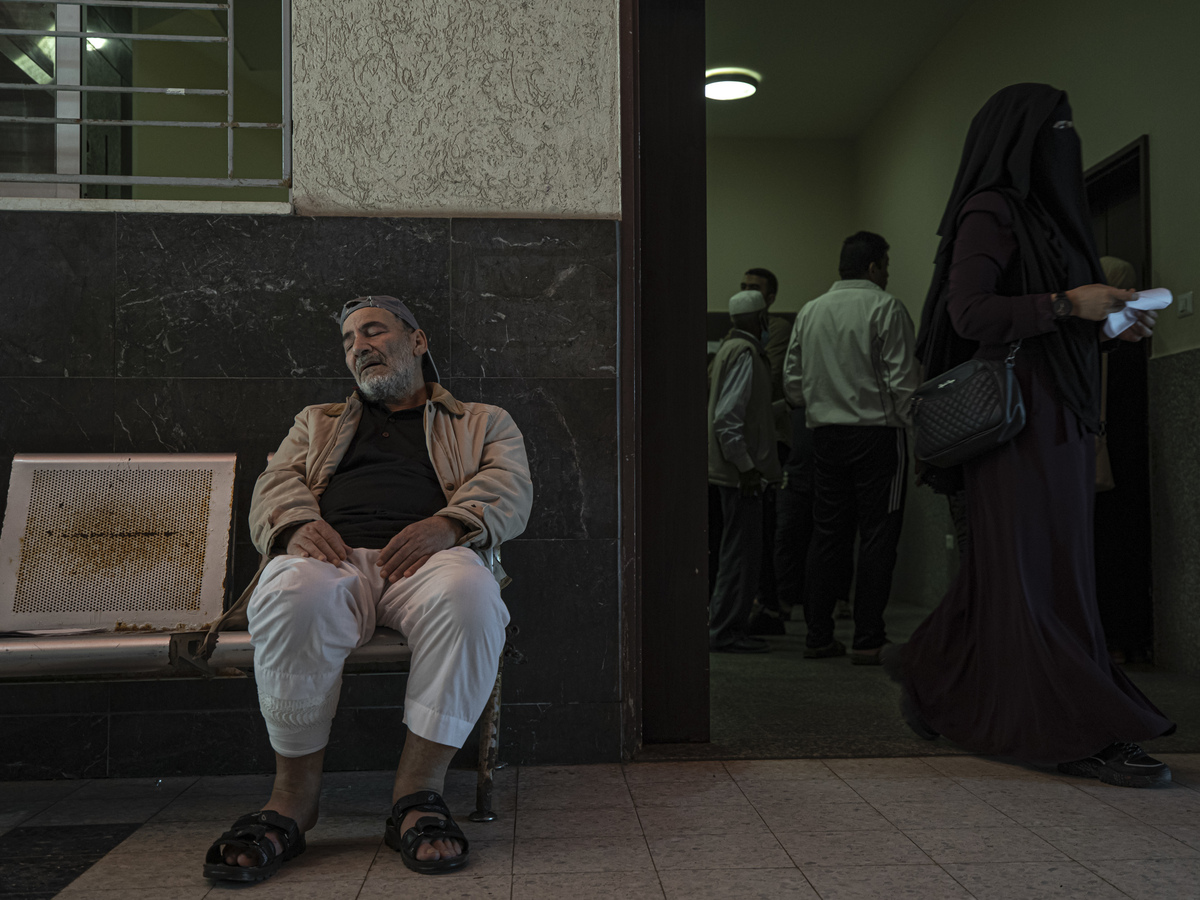
Youssef Al-Kurd has a chronic heart disease, waits for his turn to follow up with Dr. Saher Abu Ghani at Al-Shifa Hospital. Fatima Shbair/NPR hide caption

Youssef Al-Kurd has a chronic heart disease, waits for his turn to follow up with Dr. Saher Abu Ghani at Al-Shifa Hospital.
Fatima Shbair/NPROne Palestinian man's struggle to get life-saving medical care while living in the Gaza Strip highlights many lesser-seen victims of the Israeli-Palestinian conflict: Since the militant group Hamas took over Gaza 15 years ago, Israel's blockade has resulted in many barriers for Palestinians seeking critical health care.
Palestinians can try to get medical treatment both in and outside of Gaza, but need a travel permit to choose the latter. And while Israel grants thousands of travel permits a year, the timeline for securing one can be long. Some doctors have also fled Gaza. All of these factors can pose dangerous delays for vital treatment.
NPR Jerusalem Correspondent Daniel Estrin followed one patient's difficult journey to get heart surgery.
Email us at
This episode was produced by Matt Ozug and Brianna Scott. It was edited by Larry Kaplow and Ashley Brown. Our executive producer is Cara Tallo.

 Live Radio
Live Radio